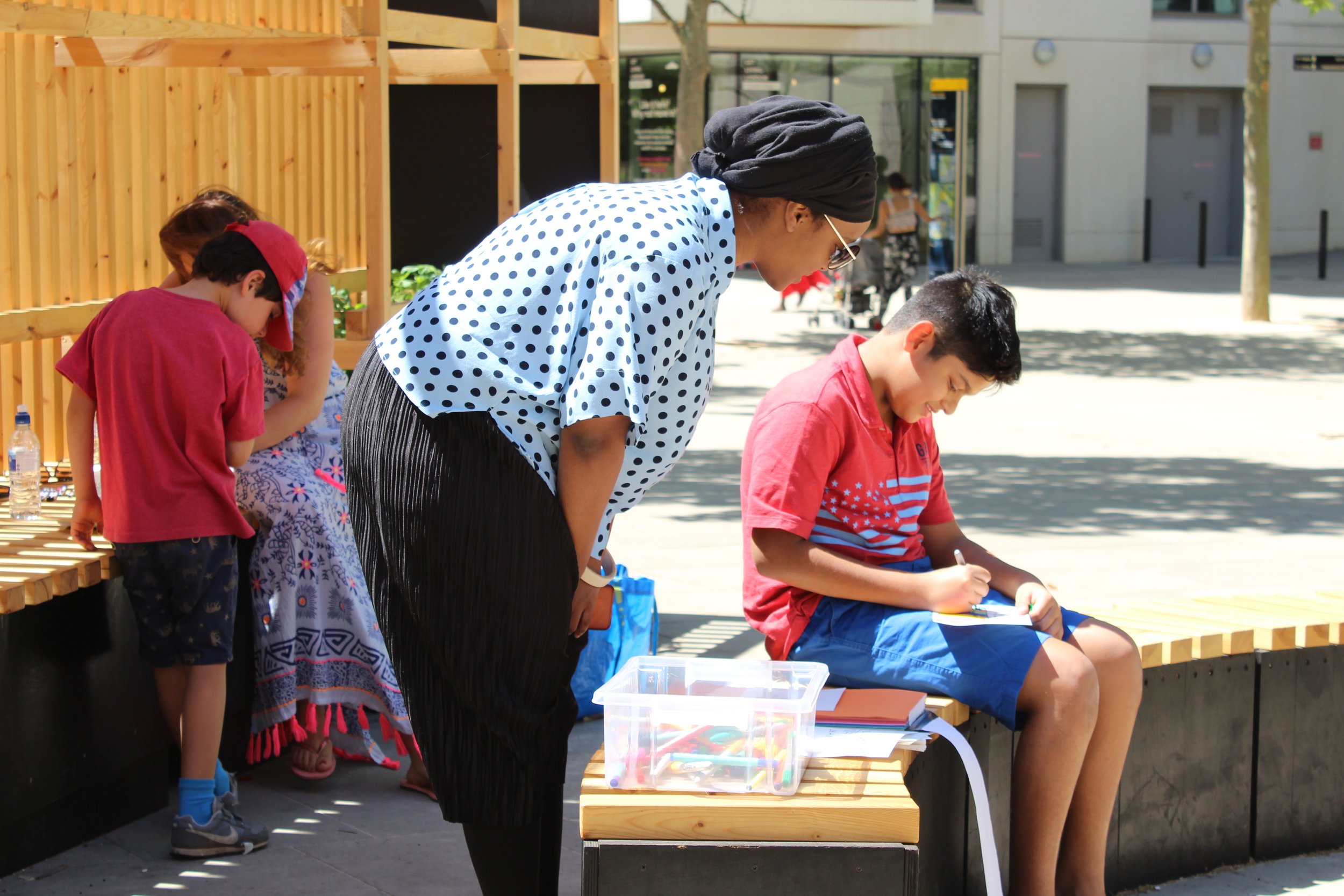Active Citizens, Wee Architects
Empowering young people through genuine engagement and co-design approaches
Local authorities, planners and architects are failing to deliver truly meaningful youth participation with their projects. Youth participation policies remain cursory, with the young person having little if any real voice in discussions and decision making process around their own built environment.
Young people must be heard. They need to be taken seriously and provided with real opportunities to inform each stage of a project; from planning, to implementation and right through to evaluation. What can we do to ensure that young people’s participation with projects of all scales is indeed genuine and not tokenistic?
Acting on young people’s views has positive outcomes for the built environment. There is much evidence to support that youth participation can lead to improved services, places and increased citizenship and social inclusion.
Since 2011, the team at New Practice have dedicated much of their careers to strengthening the connection between young people with their communities. Improving the overall approach to information designed for and to be reviewed by young people for many clients across the public and private sector including the Mayor of London, Glasgow City Council, Atkins and Balfour Beatty.
The work delivered by our team has provided clients with increased confidence in how to involve and seed power and responsibility to communities of young people.
Notably, in 2016, Marc Cairns undertook an intensive four week research trip across Albania, Serbia, Kosovo, Turkey and Azerbaijan, where he researched ways in which a wide variety of creative events, development programmes and placemaking projects were working to build more resilient communities through youth engagement projects which promoted active citizenship and participation.
The research trip was enabled by the Winston Churchill Memorial Trust (WCMT) in partnership with the British Council: Department of Architecture, Design, Fashion. By visiting countries with youthful populations, high levels of youth unemployment and where the impact of significant recent social and political upheaval is being felt, Marc was able to engage with world-leading projects that are influencing intergovernmental processes and policy making around placemaking.
From voluntary run hacker-spaces to creative innovation labs, the projects all place particular importance upon the inclusion of young people in design thinking to open-up the way in which decisions are being made.
What sets these projects apart from the typical relationship experienced by young people with their built environment is that they all focus on creating real tangible outcomes and impact for those who participate and empower them to become more active citizens.
Tokenistic involvment, for any profile group, does not create better futures for people nor does it wield sustainable cultural or economic growth for the organisations, businesses, authorities or governments undertaking significant regeneration and placemaking projects.
Since 2017, the team at New Practice has used the findings of the WCMT research to influence best practice guidelines across the planning and regeneration sector in the UK. We are committed across every project to encouraging young people to better observe, understand and enjoy architecture, to care for their city and to be critical of it; and a pilot creative engagement project funded by The Scottish Government and delivered in collaboration with Young Scot under the title ‘Shaping Our Spaces’.
The pilot worked with a wide variety of young people through formal design processes and informal dialogue to explore potential ways of widening access to information and encouraging active participation; with responses articulated through site visits, interviews, mapping activities, making and physical interventions.
In parallel across the UK, there has been an increasing drive by local and national government to more fully and actively involve young people within the building and management of their communities.
This is exemplified by initiatives such as the 2018 Year of Young People where young people where invited to shine a light on their contributions to society. As part of this programme we were invited by the British Council to create a limited edition publication which provided critical discourse on this subject; curating and editing contributions from practitioners including Build Up, Martyn Evans (YADA, Uncommon, Brick by Brick) and Paul Stallan (Stallan-Brand) which discussed a wide range of topics including the relationship between poorly design learning environments and the increase in mental health challenges for young people.
In 2019, we are leading on a project for SURF - Scotland’s Regeneration Forum which is specifically focused on developing an action plan for a rural community which wholly considers the opinions and needs of young people. This project recognises that young people in rural settings are a hard to reach group and requires an innovation approach to create multiple attractive points of access to engage young people with the project in a creative, safe and ethical manner.
New Practice are committed to delivering projects which enable the direct involvement of young people in decision making processes around major development programmes and placemaking projects. We believe that in doing so, our clients will significantly contribute to increased rates of local employment, improved local facilities, increased access to education and active citizenship for young people.











